|
maybe Pallopteridae?
|
|
| Louis Boumans |
Posted on 29-07-2005 18:35
|
|
Member Location: Posts: 262 Joined: 09.06.04 |
or Lauxaniidae? I was iunable to indentify this flies' family. It keys out as Sepsidea,which is obviously wrong. No vibrissae, postoccellair bristles sligtly divergent, almost parallel, protruding clypeus, costa interrupted at Sc anal vein does not reach costa. It matches the description of Eurygnathomyia quite well, except for the anal vein. Please help! Louis Edited by Louis Boumans on 29-07-2005 18:41 |
|
|
|
| Louis Boumans |
Posted on 29-07-2005 18:38
|
|
Member Location: Posts: 262 Joined: 09.06.04 |
picture1 |
|
|
|
| Louis Boumans |
Posted on 29-07-2005 18:40
|
|
Member Location: Posts: 262 Joined: 09.06.04 |
picture2 |
|
|
|
| Jan Willem |
Posted on 29-07-2005 21:15
|
|
Member Location: Posts: 2122 Joined: 24.07.04 |
Hi Louis, It matches Palloptera umbellatarum (Fabricius, 1775) even better! The larvae of this species develop in the flowerheads of Carlina vulgaris and Cirsium vulgare. In The Netherlands this is one of the most common pallopterids. The spot on the anal vein immediately gives away its identity. Jan Willem |
|
|
|
| Louis Boumans |
Posted on 31-07-2005 13:37
|
|
Member Location: Posts: 262 Joined: 09.06.04 |
Jan Willem, bedankt! Cirsium vulgare occurs in my garden; i found the fly indoors. No i'm sure it's a Pallopterid, i'll check again the family key to see where i went wrong. groeten, Louis |
|
|
|
| Jump to Forum: |


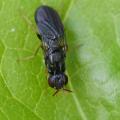



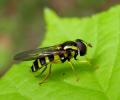
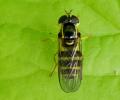

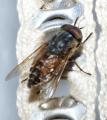
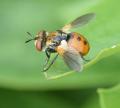


 but don't see the image in the post.
but don't see the image in the post.
